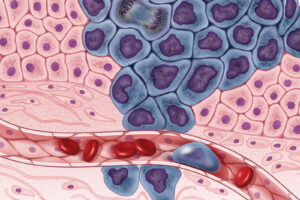Lord Charité Igirimbabazi
Staff Writer, Dartmouth College

Writer Bio
I am a member of the Dartmouth College Class of 2024. I plan to major in Chemistry and minor in Computer science. On campus, I write for the Dartmouth Undergraduate Journal Science and am a part of the Sandford Lab that focuses on the design of new catalytic reactions. Outside the United States of America, I co-founded and currently run a nonprofit organization, called Abarundikazi Period Movement, that promotes girls’ education and women’s rights in Burundi, East Africa.
Research Interests
Chemistry
For better or worse, everything is chemistry, from the air we breathe, the food we consume, vaccines’ developments, space exploration, to the emergence of devastating diseases such as Ebola virus disease. I find electrifying the fact that chemistry can help us understand and explain diverse physical observations and chemical interactions and structures that govern biological and physical systems; and more importantly improve those systems or design new systems.
Genetics
I would like to get a better understanding of the chemical and physical agents, and evolutionary explanation behind gene mutations, how these lead to new phenotypes and diseases such as cancer. I am interested in the use of CRISPR (Clustered Regularly Interspaced Short Palindromic Repeats) as a genome editing and regulating tool to study and understand the dynamics of gene mutations through genomic sequences insertions or deletions.
Computer Science
I am very interested in the use of computational tools in physical and biological sciences research. The role of computing in modern science and physical and biological sciences research cannot be underestimated. Effective modeling and simulation have become critical in modern scientific advances as they provide qualitative and quantitative insights into experimental work and a guided choice of experimental design. I am excited to see how emerging computational technologies will revolutionize science and contribute to many scientific breakthroughs.
Recent Short Articles
An Introduction to the Ebola Virus
Cover Image: Blood sample of a patient infected by the...
Read MoreSingle Cell RNA Sequencing Enhances Understanding of Tumor Genetic Diversity
Figure 1: Researchers have shown that tumor cells are a...
Read MoreHuman Endogenous Retroviruses Might Unlock a New Field of Neurodegenerative Disease Research
Figure 1: Researchers have found viral genetic materials within the...
Read More


